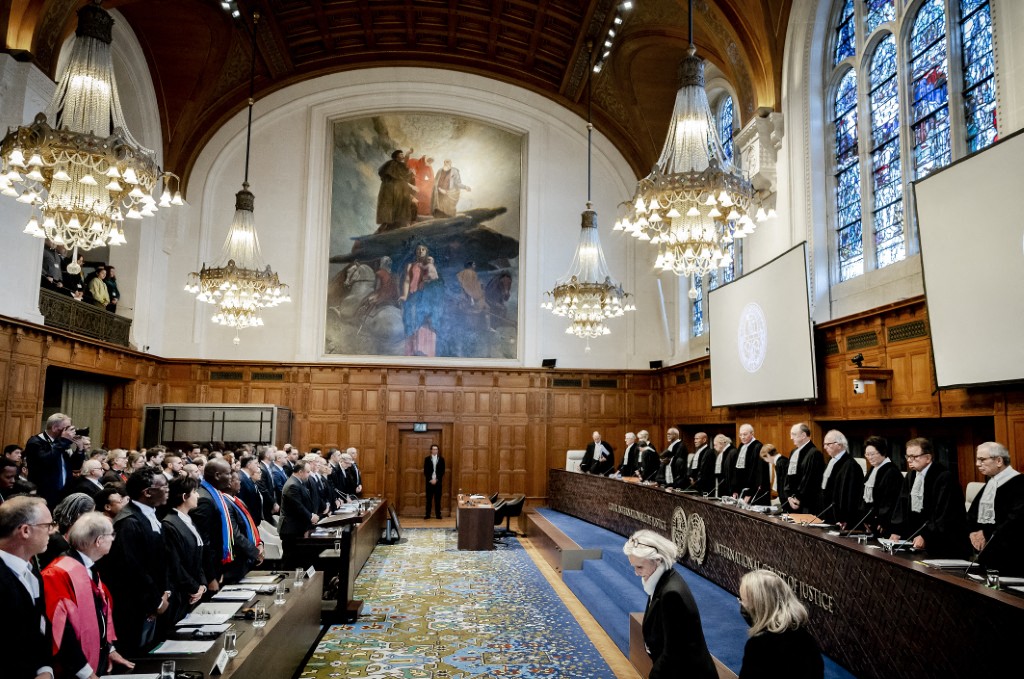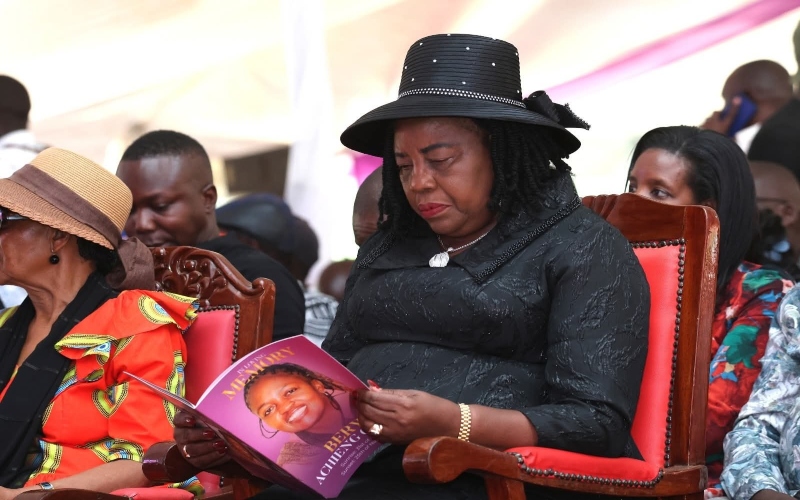Palestinians being treated like second-class citizens, Foreign minister tells ICJ

Foreign minister Riyad al-Maliki underscored the ongoing denial of rights to seven million refugees, noting their inability to return to their lands and homes.
Palestinian Foreign minister Riyad al-Maliki emphasised the unequal treatment Palestinians in Israel are facing in his address before the International Court of Justice (ICJ) on Monday.
The court has begun a week of hearings on the legal consequences of the Israeli occupation of Palestinian territories, with over 50 countries expected to address the judges.
More To Read
- Prof Phoebe Okowa sworn in as first Kenyan judge at the ICJ
- Amputee footballers reclaim hope amid Gaza’s ruins
- ICJ tells Israel to let UN aid flow into Gaza – but UN’s own failures throughout the war loom large
- Desperate need for water and food continues as Gaza families head north
- Kenya lobbies Tanzania to support Prof. Phoebe Okowa’s candidature for ICJ judge
- UN says delivering aid to northern Gaza remains challenging
Riyad underscored the ongoing denial of rights to seven million refugees, noting their inability to return to their lands and homes.
"We are treated like second-class citizens in our ancestral land," he said. "I stand before you as the entire Palestinian people continue to be denied their fundamental rights, their very existence negated."
Riyad also rejected the notion that Palestine was devoid of life before Israeli occupation, refuting claims that it was a "wasteland". He highlighted the rich political, cultural, social, and religious life that existed, including educational institutions and cinemas.
The minister characterised the Israeli occupation as "annexationist and supremacist in nature," advocating for its immediate and unconditional end per international law.
He reiterated Palestine's legitimate aspirations based on pre-1967 borders, seeking independence with East Jerusalem as its capital, consistent with UN resolutions.
The minister also insisted on the pursuit of a just and lasting solution through the peaceful coexistence of the two democratic states - Palestine and Israel.
Fifty is the largest number of parties to participate in a single ICJ case since 1945.
South Africa, Algeria, Saudi Arabia, Netherlands and Bangladesh are set to begin the hearing while Turkey, Zambia and Spain will finish on the last day.
Last month, the court made a significant ruling in favour of South Africa, granting provisional measures against Israel over the Gaza war. It directed Israel to halt attacks on Palestinians, ensure humanitarian aid, preserve evidence, and submit a response within one month.
Top Stories Today














































